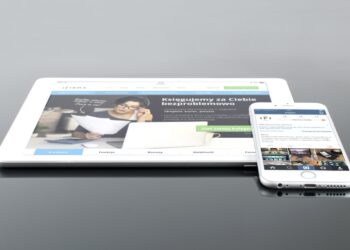Introduction: The Impact of Technology on Our Lives
Technology has become an integral part of our lives, changing the way we live, work, and interact with the world around us. From smartphones to social media, technology has transformed the way we communicate, access information, and entertain ourselves. It has made our lives more convenient, connected, and efficient. However, with these advancements come challenges and ethical considerations that need to be addressed.
The Rise of Artificial Intelligence and Machine Learning
Artificial intelligence (AI) and machine learning (ML) are revolutionising industries from healthcare to finance. AI and ML are being used to develop predictive models, automate processes, and improve decision-making. In healthcare, AI is being used to analyse medical images, predict disease outcomes, and develop personalised treatment plans. In finance, ML algorithms are being used to detect fraud, make investment decisions, and automate customer service.
The Internet of Things: Connecting Everything
The Internet of Things (IoT) is a network of connected devices that can communicate with each other and exchange data. IoT is being used to improve efficiency, reduce costs, and enhance customer experiences. For example, in the manufacturing industry, IoT sensors are being used to monitor equipment performance, predict maintenance needs, and optimise production processes. In the retail industry, IoT devices are being used to track inventory levels, personalise customer experiences, and improve supply chain management.
Virtual and Augmented Reality: Transforming the Way We Experience the World
Virtual reality (VR) and augmented reality (AR) are changing the way we experience entertainment, education, and even healthcare. VR and AR are being used to create immersive experiences that can transport us to new worlds and enhance our understanding of complex concepts. In entertainment, VR is being used to create interactive gaming experiences and immersive storytelling. In education, AR is being used to bring textbooks to life and provide hands-on learning experiences. In healthcare, VR is being used to simulate surgical procedures and train medical professionals.
The Future of Transportation: Self-Driving Cars and Hyperloops
Self-driving cars and hyperloops are poised to revolutionise the way we travel. These technologies have the potential to reduce traffic congestion, improve safety, and reduce carbon emissions. Self-driving cars can eliminate human error and make transportation more efficient. Hyperloops, on the other hand, can transport passengers at high speeds in low-pressure tubes, reducing travel time and increasing connectivity between cities.
Healthcare Revolution: Personalized Medicine and Wearable Technology
Personalised medicine and wearable technology are transforming the healthcare industry. Personalised medicine uses a patient’s genetic information to develop targeted treatment plans, improving patient outcomes and reducing healthcare costs. Wearable technology, such as fitness trackers and smartwatches, allows individuals to monitor their health in real-time and make informed decisions about their well-being. These technologies have the potential to revolutionise healthcare by shifting the focus from reactive to proactive care.
Education in the Digital Age: Online Learning and Gamification
Online learning and gamification are changing the way we learn and acquire new skills. Online learning platforms provide access to educational resources and courses from anywhere in the world, making education more accessible and flexible. Gamification uses game elements, such as points, badges, and leaderboards, to make learning more engaging and motivating. These technologies have the potential to transform education by personalising learning experiences, promoting collaboration, and fostering critical thinking skills.
The Future of Work: Automation and the Gig Economy
Automation and the gig economy are transforming the way we work. Automation is replacing repetitive tasks with machines, increasing productivity and efficiency. The gig economy is creating new opportunities for workers to find flexible work arrangements and pursue multiple income streams. These technologies have the potential to reshape industries, create new job roles, and change the nature of work itself.
Sustainable Living: Green Technology and Renewable Energy
Green technology and renewable energy are essential for creating a sustainable future. Green technology focuses on developing environmentally friendly solutions to address climate change and conserve resources. Renewable energy sources, such as solar and wind power, can reduce carbon emissions and provide clean, sustainable energy. These technologies have the potential to create new economic opportunities, reduce dependence on fossil fuels, and mitigate the effects of climate change.
Ethical Considerations: Balancing Progress with Responsibility
As technology continues to advance, it is important to consider the ethical implications of these developments. We must balance progress with responsibility to ensure that technology is used for the greater good. Ethical considerations include privacy concerns, data security, algorithmic bias, and the impact of automation on jobs. It is crucial to have regulations and guidelines in place to ensure that technology is developed and used in an ethical and responsible manner.
In conclusion, technology has had a profound impact on our lives, transforming the way we live, work, and interact with the world around us. From AI and ML to IoT and VR/AR, these technologies are revolutionizing industries and changing the way we experience entertainment, education, healthcare, transportation, and work. However, as we embrace these advancements, it is important to consider the ethical implications and ensure that technology is used responsibly for the greater good. By doing so, we can harness the power of technology to create a better future for all.






